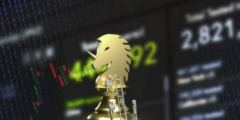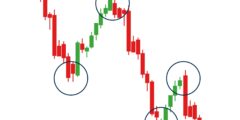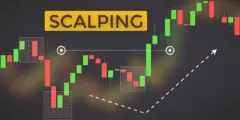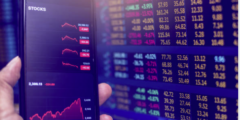Can Forex Crash? Understanding the Risks and Factors
Introduction:
Forex trading, with its vast opportunities and potential profits, attracts traders from around the world. However, it is essential to consider the risks involved in this dynamic market. One common concern among traders is the possibility of a forex crash. In this article, we will explore the concept of a forex crash, examine the factors that can contribute to market volatility, and provide insights into risk management strategies to mitigate potential losses.
Understanding Forex Market Volatility:
The forex market is known for its inherent volatility, which arises from various economic, political, and market factors. Volatility refers to the degree of price fluctuations within a specific period. While price movements can present opportunities for traders, they also carry risks. It is crucial to differentiate between normal market fluctuations and a full-fledged crash when assessing the potential risks.
What is a Forex Crash?
A forex crash, also referred to as a currency market crash, occurs when there is a sudden and significant decline in the value of one or more currencies. It is characterized by sharp and rapid price movements, often resulting from unforeseen events or market panics. While forex crashes are relatively rare, they can have severe consequences for traders and investors.
Factors that Contribute to Forex Market Volatility:
Several factors can contribute to forex market volatility and potentially lead to a crash. It is important to understand these factors to assess the risks involved:
1. Economic Indicators: Economic data, such as GDP growth, inflation rates, employment figures, and interest rates, can influence currency values. Unexpected or unfavorable economic indicators can lead to market uncertainty and increased volatility.
2. Political Events: Political instability, elections, changes in government, or geopolitical tensions can significantly impact currency exchange rates. Uncertainty surrounding political events can trigger market panic and substantial currency fluctuations.
3. Central Bank Policies: Monetary policy decisions, including interest rate changes, quantitative easing, or intervention in the forex market by central banks, can affect currency values. Unexpected or drastic policy shifts can cause market volatility.
4. Global Economic Events: Economic events on a global scale, such as financial crises, trade wars, or natural disasters, can disrupt the forex market and trigger significant price movements.
Risk Management Strategies to Mitigate Losses:
While it is impossible to predict or prevent a forex crash, traders can employ risk management strategies to mitigate potential losses:
1. Diversification: Avoid overexposure to a single currency or currency pair. Diversifying your portfolio across multiple currencies and asset classes can help spread the risk.
2. Stop Loss Orders: Utilize stop loss orders to automatically close positions when the market moves against you. This strategy helps limit potential losses by setting predetermined exit points.
3. Risk-Reward Ratio: Maintain a favorable risk-reward ratio by carefully assessing potential gains and losses before entering a trade. Aim to have potential profits outweigh potential losses.
4. Stay Informed: Stay updated on economic news, political developments, and market trends. Timely information allows you to make informed decisions and adapt to changing market conditions.
5. Practice Risk Management: Implement sound risk management techniques, such as position sizing, setting realistic profit targets, and avoiding excessive leverage. These practices help protect your capital and minimize the impact of adverse market conditions.
Conclusion:
While the forex market is prone to volatility, a full-blown forex crash is a rare occurrence. Understanding the factors that contribute to market volatility and implementing robust risk management strategies are crucial for traders. By staying informed, diversifying portfolios, setting stop loss orders, and practicing sound risk management, traders can mitigate potential losses and navigate the forex market with greater confidence. Remember, forex trading carries inherent risks, and it is essential to approach it with a well-thought-out trading plan and realistic expectations.









